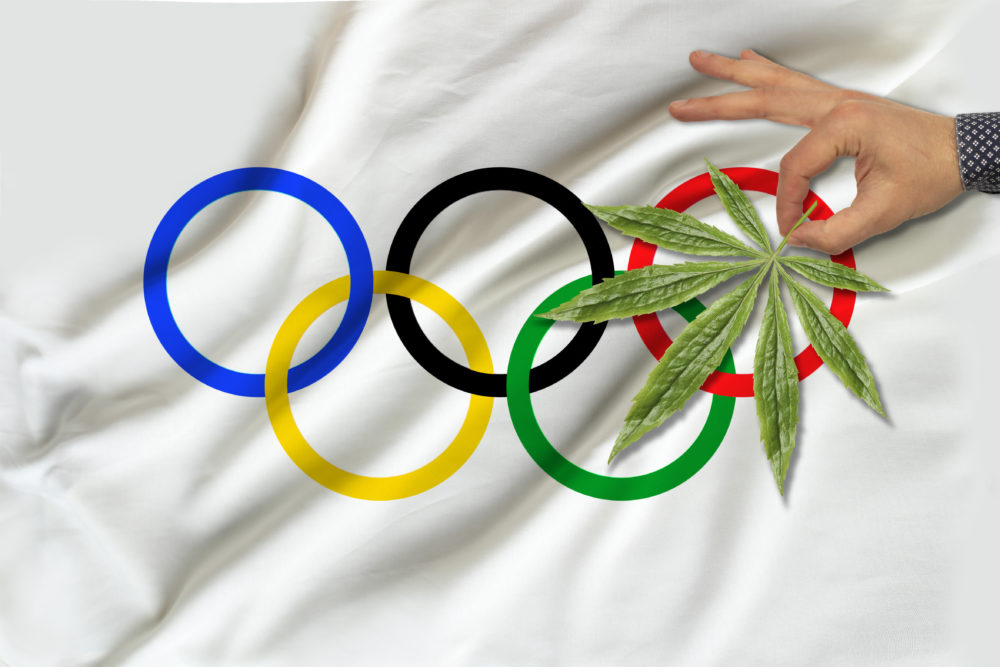Image via
The World Anti-Doping Agency (WADA) believes that athletes who use cannabis are poor role models who violate the “universal values of sport.”
WADA’s cannabis testing policies have recently come under fire after the global sports authority punished two women of color for using cannabis. In 2021, WADA officials blocked American track and field sprinter Sha’Carri Richardson from participating in the Tokyo Olympics after she tested positive for THC. And earlier this year, officials stripped long jumper and hurdler Tara Davis-Woodhall from her winning title after she tested positive for weed. Neither of these women were actually using cannabis during their sporting events, however.
The resulting controversy convinced hundreds of thousands of people to petition WADA to update its antiquated cannabis testing policies, but officials have ignored their pleas. This month, WADA’s Prohibited List Expert Advisory Group published a new editorial in the Addiction journal that explains their motives. The panel generally enforces rules that block athletes from using steroids or other performance-enhancing drugs, but officials also oversee cannabis and other illegal drug testing as well.
The panel claimed that they had “mixed” opinions as to whether or not cannabis “enhances or has the potential to enhance sports performance.” But based on a current review of relevant research studies, officials concluded that acute cannabis intoxication “can result in deficits in reaction time, temporal estimation and dexterity.” Clearly, these side effects all interfere with athletic performance, not enhance it. The report also asserts that athletes’ “excellence in performance… could be undermined by consumption of cannabis during the in-competition period.”
Despite the so-called “mixed” opinions, the review makes it clear that cannabis is not a performance-enhancing drug. So, officials instead chose to ban it for ethical reasons, claiming that cannabis use actually violates the very “spirit of sport.” The editorial goes on to say that the “role model aspect” of athletes “is not compatible with use of a substance that is still illegal in most parts of the world.” And of course, officials point out that most cannabis is still completely prohibited in most countries.
WADA also asserts that cannabis use demonstrates a lack of “respect for self and other participants.” The editorial states that “the welfare and safety of other participants may be compromised by impaired judgment associated with the presence of cannabis in an athlete in-competition.” The report attempts to back up these assertions by citing a few studies claiming that underage cannabis use can inhibit cognitive development, despite the fact that these claims are irrelevant to adult athletes.
The editorial notes that WADA technically only bans athletes from using cannabis during competitions. Under the current rules, athletes can supposedly smoke as much weed as they want, as long as they quit 24 hours before their event and then remain sober while they are competing. The panel claims that their “high” THC thresholds “generally will not affect the freedom of an athlete who wishes to legally consume cannabis outside of competition.”
These rules make it clear that WADA doesn’t really understand how cannabis testing works. THC metabolites can remain in the system for months after a person gets high, so an athlete who puffs a joint a few weeks before a competition can still test positive. Which is exactly what happened in Richardson’s case – she admitted to using cannabis one week before the Olympics to help cope with her mother’s death. But even though she would have been completely sober at the time of the race, WADA officials still decided to deny her a chance to win a medal.











